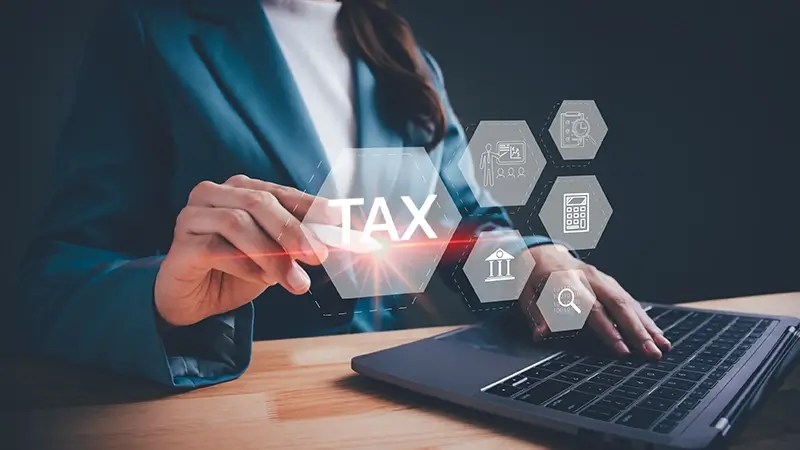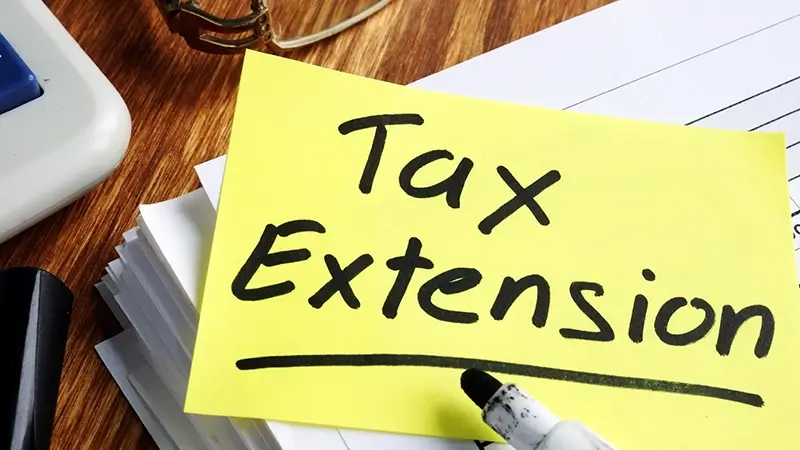International Tax Structuring Services
Navigating the complexities of global tax laws requires precision and expertise. International tax structuring services offer strategic guidance to...
Tax season can be a stressful time, but being informed about key dates and deadlines can make the process smoother and less daunting. In this blog post, we’ll guide you through the 2023 tax return dates and deadlines, provide tips for staying organized, and help you avoid common pitfalls, ensuring a successful tax season. Let’s dive in!
2023 Tax Return Dates: April 15th is the primary deadline, January 23rd marks the start of filing season and extensions are available until October 18th.
Payments must be made on time to avoid penalties and interest. Electronic filing can expedite refunds.
Prepare for tax season by gathering documents, consulting IRS resources & seeking professional help if needed.
As we embark on the new tax year, it’s crucial to be aware of the key dates and deadlines that will affect your federal income tax return process. The 2023 tax filing season begins on January 23, allowing taxpayers to start submitting their 2022 tax returns. The primary tax filing deadline for 2023 federal income tax returns is April 18th, due to the Emancipation Day holiday in the District of Columbia. In addition to the main deadlines, various form deadlines must also be observed, such as those for W-2 and 1099 forms.
To stay on top of these deadlines and avoid penalties, taxpayers should consult IRS Publication 509, a comprehensive guide that covers all pertinent tax deadlines. It’s essential to note that while most tax deadlines are federally mandated, state income tax deadlines may vary, so it’s crucial to check with your state’s Department of taxation for specific due dates.
The Internal Revenue Service (IRS) strongly recommends filing tax returns electronically to prevent delays in processing. Electronic filing, combined with direct deposit, can significantly speed up the refund process, with most taxpayers receiving their refund within 21 days if there are no complications with their tax return.

As the 2023 tax filing season kicks off on January 23, it’s essential to be prepared. The IRS requires a period of time before the tax filing season to execute programming and testing, ensuring the successful operation of their systems. To expedite the processing and receipt of refunds, taxpayers should organize and gather all relevant 2021 tax records, consult IRS.gov for the latest tax-related information, and make final estimated tax payments for 2021 by the due date of January 18, 2022.
The IRS offers free tax return preparation through two different programs: Volunteer Income Tax Assistance and Tax Counseling for the Elderly. One must meet certain qualifications to take advantage of these services. These resources can be invaluable for those who need assistance navigating the complexities of tax filing and ensuring accurate and timely submissions.
The main tax filing deadline for 2023 is April 15th, a deviation from the usual April 15th deadline due to the Emancipation Day holiday in the District of Columbia. Taxpayers in Maine or Massachusetts have an additional day to file their returns, as their deadline is April 19th due to the Patriots’ loss day holiday in those states. Remember, filing your tax return on time is crucial to avoid penalties and interest.
If you find yourself in need of extra time to file, you can request a six-month tax extension by submitting IRS Form 4868 by April 15th. However, it’s important to note that even if you request an extension, any taxes owed must still be paid by the original deadline of April 15th to avoid penalties and interest.
Missing a tax deadline can be stressful, but it’s essential to take action as soon as possible to minimize penalties and interest. If you’ve missed the deadline and owe taxes, file your return and pay as much as you can immediately. You can then arrange an installment plan with the IRS to pay off the remaining balance.
If you’re due a refund, there’s no penalty for filing late, but it’s still recommended to file as soon as possible to receive your refund promptly. In cases where you need to make corrections to a previously submitted tax return, use Form 1040-X to amend your return. To prevent potential delays, only submit Form 1040-X after the original Form 1040 has been accepted by the IRS.

Taxpayers who need more time to file their tax returns can request an extension by filing IRS Form 4868, which grants a six-month extension until October 16, 2023. Keep in mind that this extension is only for filing your return, not for paying any taxes owed. Taxes owed must still be paid by the original deadline of April 18, 2023, to avoid penalties and interest.
If you’re unable to pay your taxes in full by the deadline, the IRS offers a variety of payment plans to help reduce penalties and interest on the taxes owed. It’s essential to file your return on time, even if you can’t pay the full amount, and then work with the IRS to establish a payment plan for the remaining balance.
Estimated tax payments are quarterly tax payments made by small business owners, freelancers, and independent contractors based on their income for that period. These quarterly estimated tax payments, also known as estimated tax payments, are essential for individuals who do not have taxes withheld from their income, such as self-employed individuals or those with other income not subject to withholding, in order to manage their tax liability.
Specific deadlines must be adhered to in order to avoid penalties for not paying estimated taxes. These deadlines typically fall on April 15th, June 15th, September 15th, and January 15th of the following year. To stay on top of these deadlines and avoid penalties, it’s crucial to plan accordingly and ensure your estimated tax payments are postmarked by the due date.
If you fail to make your estimated tax payments on time, you may face an underpayment penalty. Paying 90% of the forecasted current year tax bill or 100% of the prior year tax bill typically prevents the need to pay an underpayment penalty, which is essential for those who need to pay estimated taxes.

State income tax deadlines generally follow the federal deadline, but it’s important to check with your state’s department of taxation for specific due dates and extension rules. Some states may have different deadlines for state income taxes and estimated tax payments, particularly for their quarterly estimated taxes.
In addition to checking your state’s department of taxation website for deadline information, you can also consult with a tax professional or tax preparer who is familiar with your state’s tax laws. They can help ensure that you’re aware of all the necessary deadlines and can assist you in filing your state income tax return accurately and on time.

Filing your tax return electronically and choosing direct deposit can help speed up the refund process, reduce errors, and avoid delays in processing. The IRS recommends electronically filing tax returns, as it can significantly improve the efficiency of the entire process. With direct deposit, most taxpayers receive their refund within 21 days if there are no complications with their tax return.
To further expedite the refund process, taxpayers can monitor their refund status using apps for Apple, Android, and other devices. If you’re working with a tax professional, such as a CPA or EA, they may also be able to provide you with information regarding the estimated date of your tax refund.
The IRS sends special letters to recipients of advance Child Tax Credit payments, Economic Impact Payments, or Earned Income Tax Credit. These letters, such as Letter 6419 for the advance Child Tax Credit and Letter 6475 for the third Economic Impact Payments, contain important information that can help individuals file accurate 2021 tax returns and avoid delays in the refund process.
Eligibility for the Child Tax Credit requires taxpayers to file a 2021 tax return. Advance payments of the credit have been issued by the IRS, and the second half of the credit will only be paid out upon filing. You may claim the full credit if you are eligible, even though you did not receive advance payments. To do so, simply file your tax return.
Letter 6475 will assist individuals in determining if they are qualified to claim the Recovery Rebate Credit for missing stimulus payments.
Preparing for tax season involves organizing tax records, checking IRS.gov for information, making final tax payments, and filing electronically with direct deposit to ensure a smooth and efficient process. To stay organized, begin the process early, collect all required documents, decide on your method of filing, and consider filing an extension if necessary. It’s also essential to stay aware of tax deadlines and any changes to tax laws.
The IRS offers free basic tax return preparation for eligible individuals through programs such as the Volunteer Income Tax Assistance and Tax Counseling for the Elderly. These resources are available to help taxpayers with their specific needs. Utilize these resources, along with the guidance of a tax professional if needed, to ensure a successful and stress-free tax season.
In conclusion, staying informed about the key dates and deadlines for the 2023 tax season is crucial for a successful filing experience. By preparing early, organizing your tax records, and utilizing available resources, you can navigate the tax season with confidence and ease. Remember to file electronically and choose direct deposit for faster refunds, and don’t hesitate to consult with a tax professional if you need assistance. Here’s to a smooth and stress-free tax season!
At H&CO, our experienced team of tax professionals (CPAs) understands the complexities of income tax preparation and is dedicated to guiding you through the process. With a personalized approach, we help you navigate US and international income tax laws, staying up to date with the latest changes.
For over 30 years, our bilingual trusted CPA Tax Advisors have provided exceptional income tax services to individuals, families, real estate investors, family offices, small business owners, multinationals, and foreign individuals. Our goal is to ensure you take advantage of all available deductions and credits, minimizing your tax liability effectively.
With offices in Miami, Coral Gables, Aventura, and Fort Lauderdale, our CPAs are readily available to assist you with all your income tax planning and tax preparation needs. To learn more about our accounting firm services take a look at our individual tax services, business tax services, international tax services, expatriate tax services, SAP Business One, entity management, human capital and audit and assurance services.
Trust H&CO for reliable and comprehensive income tax services that bring you peace of mind.
In 2023, the tax season will start on January 3 and the filing deadline for individual returns is April 18. For those requesting an extension, the extended due date is October 17.
It is important to note that if you owe money, payments must be made by April 18 to avoid interest and penalties.
Based on the information provided, it is likely that there will be tax refunds available in 2023. Early filers who are due a refund should expect to receive their refund as early as mid-February or late April.
However, the average amount of refunds is trending lower than this time last year.
It’s almost time for taxpayers to submit their annual returns - April 18 is the official deadline this year. All individual tax returns must be filed on or before April 18, 2023 to avoid potential penalties and interest. So don’t wait until the last minute!
April 18, 2023.
Yes, the tax deadline is extended for 2023. For individuals and businesses impacted by 2022-23 storms in California, Governor Newsom has announced an extension to file and pay taxes until October 16, 2023. This includes those whose tax returns and payments are due on April 18, 2023.
Requesting a tax extension gives you more time to file your federal tax return until October 16, 2023.

Navigating the complexities of global tax laws requires precision and expertise. International tax structuring services offer strategic guidance to...

In today's interconnected world, businesses and individuals engage in cross-border transactions and investments, leading to complex international tax...

Who doesn’t love a larger income tax refund? In this blog post, we’ll dive deep into the world of tax refunds and explore various strategies to get...
